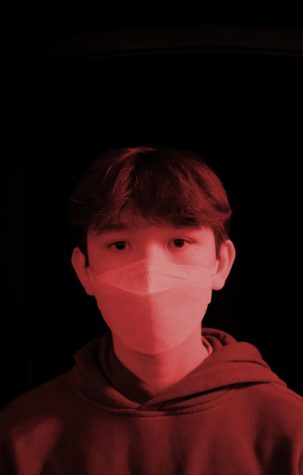Oliver Maranda, 10th
March 10, 2023
How has your celebration of Lunar New Year changed since quarantine?
[My family] always tries to go out and have some sort of long noodles to represent living a long life. We would normally go to different Korean restaurants, but for the COVID-19 years we didn’t do that much. One year we made dumplings, and that was fun. I also remember going to [the restaurant] Arirang and having japchae and bibimbap. I really like noodles, so eating long noodles is my favorite part, and just spending time with family and exploring different parts of my culture that I don’t really think about every day.
Why do you think it’s important to hold on to these traditions?
I think it’s important to connect with different parts of your culture, especially when those parts of your cultures [have] a lot of stigma and negative things happening to people like that, and just being who you are. [Lunar New Year is] a big, important event for people of my culture and being able to be a part of that and see what it’s like, and [be a part of] different traditions is really interesting. I don’t really practice that culture every day and it’s really interesting to see what it’s like, with different members of my family, and what people who are still in Korea — what they would do. I think it’s important to give each of these parts of myself the attention that they deserve, and take moments to just reset and explore different parts of my identity.
What does “new year” mean to you?
I [celebrate] all sorts of different New Years. [My family celebrates] three new years. We have the calendar new year, the Jewish new year, and then Lunar New Year, and it’s interesting because all of the symbolism and new starts, and instead of being like, “I’ll do it next year,” you have more opportunities to just make a significant change, and just make a big difference in your life. I imagine I would have different connections with both of my grandparents on my mom’s side if they were still alive. They would practice different traditions like red envelopes, and a lot of bowing. And I think it’s a little bit sad that my sister [and I] won’t ever be able to share those experiences with them. I think it’s important to share these experiences with the family members that you still have.
What do you want your relationship with the Lunar New Year to look like in the future?
I’d like to learn more in depth about the Lunar New Year because [my family does] more surface stuff, because we’re very busy and we just spend time that night, but I feel like learning more about different celebrations, or maybe [learning to] make different kinds of foods so you can also make them in the future is important. When I go live on my own, I can also continue on with these traditions. And they taste really good.
How do hardships the Asian American community faces influence your view of the Lunar New Year?
I think it’s important, and even more so during trying times, to stick together and spend time with groups and celebrate what people want to stop from happening, or attack or put down. Especially [since] COVID-19 also brought stigma against Asian American communities because they would blame them for [the pandemic] happening, and I feel it’s important to stay together, stay with family and friends.

